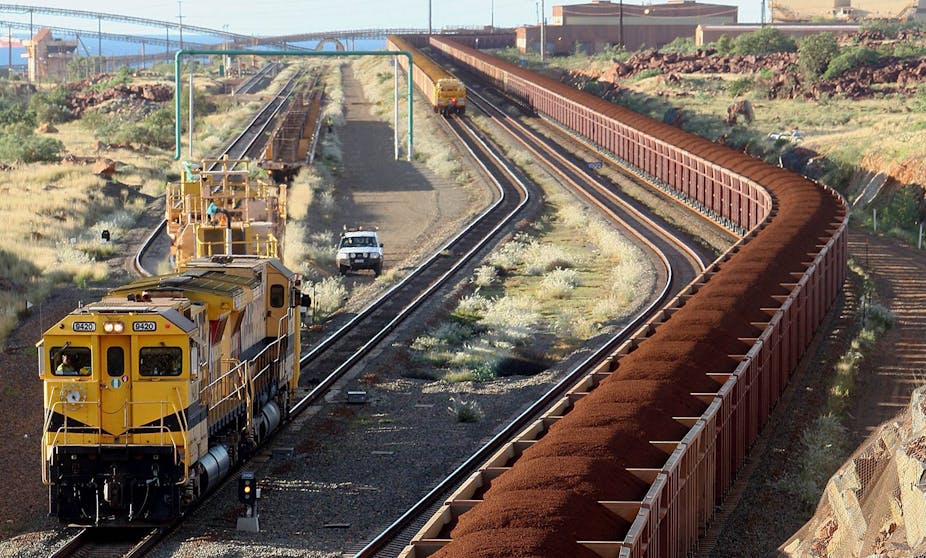Calls to establish an Australian Sovereign Wealth Fund have intensified with the world’s biggest bond managers, Pacific Investment Management Co (Pimco) calling on the Federal Government to manage for future generations what it says is “once-in-a-century” mining boom.
The move follows similar calls by Malcolm Turnbull and business leaders. Meanwhile, Federal Treasurer Wayne Swan has warned the current boom will not yield the same revenue ‘rivers of gold’ as the previous one.
We asked three economists: is a Sovereign Wealth Fund a good idea?
Mark Crosby, Melbourne Business School:
There are a number of reasons why a Sovereign Wealth Fund (SWF) is a good idea.
Firstly, in a country where current wealth is high for whatever reason (the mining boom in the case of Australia), it makes sense to save some of that wealth.
Secondly, it is desirable to constrain public finances and to save for future obligations that will arise because of an ageing population.
But my concern is whether it is better to “invest” the proceeds of a SWF in financial instruments or whether it is better to invest more directly in the people and infrastructure of the economy.
SWFs come at a cost – taxes are higher than they could be, or government spending is lower, or both. They are a long term investment, and alternative long term investments are in education, infrastructure and other productivity enhancing reforms.
As with saving for an ageing population these are 20-plus year investments.
I do have a concern that in politics today our leaders cannot see this far ahead and so policy is too much directed towards middle class/median voter welfare as opposed to longer term investments.
But in a policy sense I do not see it as clear cut that a SWF is better than other potential investments in the future of our economy.
A final point is that I think that the kinds of investments that SWFs are likely to be able to make in the future are likely to be somewhat constrained. We have recently seen the rejection of the ASX Singapore exchange merger, partly due to the connections between the Singapore exchange and Singapore’s SWF (Temasek).
An Australian sovereign wealth fund might be similarly constrained – an alternative to an SWF is to increase compulsory superannuation, in which case individual investors or super funds are far less likely to be constrained in their equity investments.
Jonathan Pincus, University of Adelaide:
Mining converts one asset into another — minerals in the ground become cash in the bank. A wise budget manager does not go on a spending spree, merely because of a surplus of cash.
If you trust the government more than you trust the people, then you should support a SWF and have government spend the cash over a suitable period of years. Otherwise, support ‘cash splashes’ and the like.
Instead of saving them, the Labor government plans to spend all the mining tax revenues.
The revenues from taxes on mining profits are likely to fluctuate hugely, year by year; and more so than other major tax sources.
If the mining tax revenue is expended as and when it arrives, then public spending of dubious value would be financed in good years, and some good public programs contracted in bad years.
So it would be wise for government to put something aside in good years, in case the bad years come sooner than expected.
This short-run version of a sovereign wealth fund would also reduce what may turn out to be an unnecessary burden of structural adjustment in other trade-exposed sectors of the economy.
Margaret McKenzie, Deakin University:
Creating a new sovereign wealth fund is a good idea, but the objectives would need to be considered very carefully when developing the structure.
The resources boom has contributed to the strength of the Australian dollar. If that continues, it may be a source of Dutch disease, limiting the expansion of tradeable sectors in the economy (a perennial problem in Australia). A well managed and diversified sovereign wealth fund could address that.
It would beneficial for the domestic economy if some revenue generated from the mining boom is withheld from immediate expenditure, shifting it to the future and contributing to sustainability and promoting appropriate technological directions.
Because sovereign wealth funds have relatively conservative portfolios, they did not appear to suffer as badly as many other funds in the GFC.
A well managed sovereign wealth fund could also serve stabilisation purposes and help insulate the economy from internationally transmitted shocks such as the GFC.
The Future Fund was set up to manage budget surpluses, and as a pension fund, but now we are faced with the task of managing reserves due to resources-export revenue.
The two need to be considered together and coordinated. This would ensure that the implementation of a sovereign wealth fund would be done judiciously in terms of long-term government policy.
We just need to ensure that we have a clear idea of what path we want the economy to follow and what patterns of industry growth we need.

